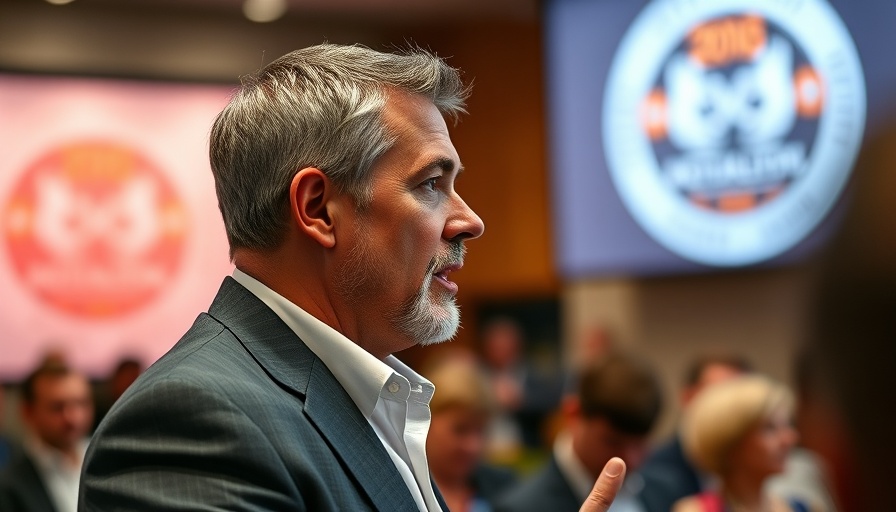
How the GNU is Shaping Political Perceptions in South Africa
The recent remarks from Inkatha Freedom Party (IFP) leader Velenkosini Hlabisa during the party's 50th Anniversary celebrations reveal a significant shift in the perception and positioning of the IFP within South Africa's complex political landscape. Hlabisa's assertion that the Government of National Unity (GNU) has elevated the IFP's status illustrates a broader narrative of coalition governance that is increasingly relevant as South Africa approaches the 2024 general elections.
Adapting to New Political Realities
As political dynamics continue to evolve, Hlabisa emphasizes the necessity for his party to align itself with contemporary political demands. "The struggle has changed," he notes, pivoting the focus from historical contestation to pressing issues like economic empowerment, gender-based violence, and social equity. These shifts signal not only a transformation within the IFP but also reflect a larger trend across South African political parties that are realizing the importance of addressing the evolving concerns of their constituents.
The Implications of Coalition Governance
The GNU, comprising multiple political entities, is a response to the increasingly fractured political environment. Hlabisa asserts that this governance model has granted the IFP visibility that transcends its traditional voter base. However, the participation in a coalition government comes with high stakes. As Hlabisa pointed out, the electorate is keen to hold parties accountable: “You promised! Are you able to deliver?” This paradigm places heightened pressure on opposition parties, including the IFP, to demonstrate their relevance and capability, as voters have the power to switch allegiances based on performance.
Addressing Social Issues: A New Focus
The commitment to invest in youth and enhance gender representation showcases an understanding that societal change must be rooted at the grassroots level. Hlabisa’s focus on economic freedom encapsulates a pivotal element of the contemporary struggle in South Africa. Issues like high youth unemployment rates, increased crime levels, and demands for policy reform necessitate a proactive approach from the IFP to propose solutions that resonate with a diverse electorate seeking change.
The Role of Leadership in Shaping Foreign Relations
Shifting gears, Hlabisa spoke positively about President Cyril Ramaphosa’s leadership in international relations, particularly regarding the selection of the next South African ambassador to the United States. This perspective illustrates an essential aspect of political leadership—managing both domestic affairs and maintaining a robust international profile. The suggestion that Ramaphosa is adept at assessing individuals for diplomatic roles underscores the expected connections between domestic political stability and international diplomatic ties.
Preparing for the Future
As South Africa gears up for the 2024 general elections and the 2026 municipal elections, political realignment remains a critical topic. The GNU offers a platform for parties to collaborate, thereby addressing crucial national issues such as land reform, economic policy, and public sector reform. However, the specter of party loyalty and the challenge of maintaining integrity amidst political collaboration will be tests of resilience for all involved.
Public Sentiment and Civic Engagement
The call for electoral reform and enhanced police accountability resonates with an electorate increasingly concerned about safety and trust in public institutions. The intersection of expectancy and governance is pivotal, as voters demand transparency and tangible results from their elected officials.
Conclusion: A Complex Future Ahead
As Hlabisa's reflections emphasize, the landscape of South African politics is evolving. The IFP’s integration within the GNU represents not just a tactical move but a strategic repositioning aimed at fostering voter trust through accountability and tangible economic outcomes. With the urgency of voter engagement escalating, parties must remain vigilant and responsive to the electorate's needs.
As we approach the upcoming elections, understanding the shifting dynamics of political alliances and party responsibilities will be essential. The stakes have never been higher; hence, engagement in democratic processes is crucial for all South Africans.
 Add Row
Add Row  Add
Add 




Write A Comment